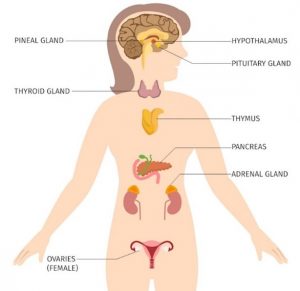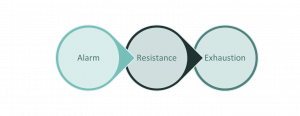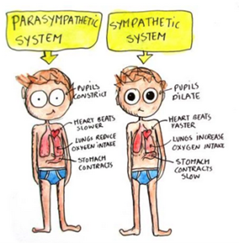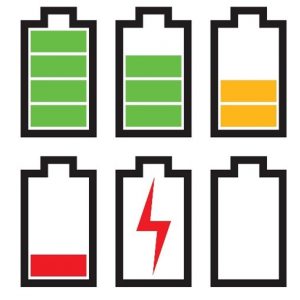Modern life is stressful, right?
Modern life is super stressful, for many of us evolution hasn’t caught up with how our bodies internally respond to stress and stressors.
For most people, modern life is pretty full-on and just far too busy. We wear many different hats during the day including work (sometimes multiple jobs), families, children’s activities, elderly care of a parent, housework, laundry, cooking, and shopping to name a few all whilst being permanently connected to the digital world. Maybe you’ve started to depend on caffeinated drinks or other stimulants to get you through the day.
Our bodies are not geared to deal with this kind of unrelenting stress day after day.
Stress and Stressors – aren’t they the same thing?
Stress isn’t always negative, although that is not commonly reported through the media. We need a certain amount of stress in our lives to give us our get-up and go. Stress is simply the body’s response to changing demands.
Each person has different stressors because each of us has a unique set of resources, understanding of the world, and way of perceiving things. What seems like a threat to one person may be perceived as a challenge to another – think about your network of friends? A day out shopping in the sales could be a significant stressor for a naturally introverted friend who really dislikes crowds. The table below shows the typical stressors, it’s possible for them to switch between the positive and negative at different stages.
| Positive stressors | Negative stressors |
|
|
A bit of anatomy – the adrenals…….
We each have two of them, and they sit just above our kidneys. They make up part of our endocrine system (pictured to the right).
Although physically separate from the hypothalamus and pituitary glands, they are deeply connected. The adrenals produce even more hormones than the pituitary gland does – steroid hormones like cortisol, sex hormones like estrogen, progesterone, testosterone, and DHEA, as well as stress hormones like adrenaline and dopamine. The hormones produced by the adrenals control chemical reactions over large parts of our bodies
What is adrenal fatigue?
Our body really values being in balance, that’s its happy place.
At the simplest level, adrenal fatigue is caused by the inability of your adrenal glands to cope with stress. Our adrenal glands are essential for our everyday health. They produce hormones that help the body burn fat and protein, regulate sugar, regulate blood pressure and react to stressors. The adrenal glands are part of the HPA axis – this is a super important collective of our hypothalamus, pituitary glands, and adrenal glands that work together to determine the hormone levels in our body

The initial body response to the stress alarm is a “fight or flight response”. Our adrenal glands pour out adrenaline and other stress hormones, causing changes in the body. When the stress is resolved or the threat has gone away, symptoms disappear fairly quickly. This stress response evolved to protect us from predators and other immediate threats, not as a response to modern life.
When the stress continues, the body then goes into the resistance phase; the body pours out the big guns of stress management like cortisol; this is the body’s own version of a steroid. Like all steroids, there are side effects of having too much cortisol in the body. We begin to see weight gain, increased yeast infections, irritability, anxiety, insomnia, skin rashes, acne, and hormonal imbalances all down to the pregnenolone steal where the body prioritises managing stress responses over reproduction.
With sustained stress, those unrelenting stressors that continue and continue and just don’t let up, the body goes into its final phase of exhaustion; manifesting as a partial or total weakening or collapse of body function or a specific organ. For the adrenal system it means that eventually, it’s not able to continue producing cortisol, this then affects other neurotransmitters like aldosterone, testosterone, and epinephrine – throwing our whole body out of balance. Prolonged stress places a tremendous load not just on the adrenal glands that pour out the stress hormones but also on many other organ systems like the heart.
When we are in a constant high-stress state, it means that our parasympathetic nervous isn’t activated meaning that we don’t get to enjoy being in “rest & digest”.
Adrenal fatigue can be more commonly known as HPA Axis Dysregulation. The HPA axis connects to the brain, nervous system, immune system, digestive system, and circulatory system. So you can see how damaging the chronic stress response is to all of these systems in the HPA axis.
What can cause adrenal fatigue?
Any kind of excess stress can cause adrenal fatigue. Experiences such as grief, trauma, and autoimmune conditions are also thought to have a possible negative effect on adrenal function.
If you’re feeling constantly exhausted and under long-term mental, emotional or physical stress, this could be the cause.
Symptoms of adrenal fatigue
 The typical symptoms are listed below
The typical symptoms are listed below
- Excessive fatigue with energy drops throughout the day
- Trouble falling asleep at night and waking up in the morning
- Poor mood regulation
- Brain fog
- Cravings for sweet or salty foods
- Overuse of caffeine and other stimulants
- A compromised immune system
- Unexplained weight loss
More often than not, medical conditions can arise from being in adrenal fatigue. These all have clear treatment paths within the standard western medical model without taking a step back to see the underlying causes:
- angina/chest pain and cardiovascular disease;
- anxiety and depression;
- autoimmune diseases including thyroid issues, ulcerative colitis/Crohn’, Sjogren’s, or arthritic conditions; colds and immune suppression;
- PMS and hormonal disturbances;
- irritable bowel syndrome, ulcers, and other gastrointestinal problems;
- high blood pressure; type 2 diabetes; and headaches.
Why talk about adrenal fatigue in clinic?
It’s often the missing link in your health journey and the reason why you don’t see the progress you’d like when making positive lifestyle changes.
Often you’ll get blood work done at your GP only to be told everything is normal and “within range”, however, they don’t tell you how big that range is. Normally your results need to be 75% outside of the given range to warrant any further investigation.
I think this is me, can you help?
Working together, I can help you understand how to restore the delicate balance of hormones, supporting you with a combination of nutritional advice, supplementation, and effective stress management techniques can quickly result in some significant changes. In the longer term, eliminating the causes of stress & stressors is crucial for a full recovery.
Sources
https://www.hormone.org/diseases-and-conditions/adrenal-fatigue
https://chriskresser.com/the-modern-lifestyle-a-recipe-for-adrenal-fatigue/
https://www.health.harvard.edu/blog/is-adrenal-fatigue-real-2018022813344
https://www.healthline.com/health/adrenal-fatigue-treatment
https://www.endocrineweb.com/conditions/adrenal-disorders/adrenal-fatigue
https://www.elizabethrider.com/low-energy-it-could-be-adrenal-fatigue/
https://happyhormonesforlife.com/are-you-suffering-from-adrenal-fatigue/
https://www.kathypayne.co.uk/10-signs-of-adrenal-fatigue-and-what-to-do-about-it/
https://www.ncbi.nlm.nih.gov/pmc/articles/PMC5979578/
https://www.seasidemedicalpractice.com/adrenal-fatigue/
https://thehcim.com/Medical-Services-Treatments/adrenal-fatigue/
https://adrenalfatiguesolution.com/what-is-adrenal-fatigue/
https://www.womenshealthnetwork.com/adrenal-fatigue-and-stress/
https://www.annelemonswellness.com/blog-1/2017/12/31/adrenal-fatigue-what-is-it-and-how-do-i-fix-it
https://beyondthemountainwellness.com/blog/2020/3/1/whats-adrenal-fatigue-and-why-do-you-have-it
https://thehealthbeat.com/adrenal-fatigue-and-thyroid-connection-solution/
https://www.organicolivia.com/2018/06/the-truth-about-adrenal-fatigue-root-causes-explained/
http://www.a-familychiropractic.com/blog/the-four-stages-of-adrenal-fatigue/
College of Functional Wellness – Functional Kinesiology Practitioner Training.
